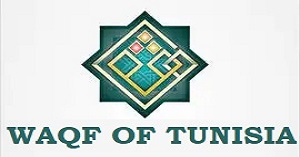Waqf Law in the Muslim World: A Study of the Organization and Administration of Waqf in Tunisia
DOI:
https://doi.org/10.59698/quru.v3i1.417Keywords:
Tunisia, Waqf, Administration, Professional, ManagementAbstract
This research examines Islamic waqf in Tunisia, a topic that is rarely discussed in contemporary studies, especially from a historical and sociological perspective. Most of the existing studies focus more on normative aspects such as the laws, conditions, and pillars of waqf. In contrast, empirical research looking at the historical and sociological aspects of Islamic waqf is limited to local cases. Tunisia, which is known to be liberal in Islamic law reform, especially in the field of family law, rarely has in-depth studies on waqf. The purpose of this study is to analyse the organisation and administration of waqf in Tunisia and its impact on society. The research uses the literature method with a normative juridical approach which is descriptive analytical in nature. The results show that the organisation and administration of waqf in Tunisia are influenced by internal Muslim factors as well as government policies. The government, in particular, has a very dominant influence in the process. There are two main motivations from the ruling party: first, economic motivation that emerged since the French protectorate, which encouraged economic capitalisation; second, political motivation that initially supported certain political processes, but later developed for other political interests, as happened during the time of President Habib Bourguiba. The practice of waqf administration in Tunisia mostly involves administrative reform efforts in the broader context of Islamic law. Although there is no clear form of productive waqf, waqf in Tunisia has evolved in terms of its form and implementation mechanism in a more professional manner.
References
Adijani al-Alabij, Perwakafan Tanah di Indonesia dalam Teori dan Praktek, Jakarta: Rajawali Pers, 1989.
Abdoeh, Nor Mohammad. “Tinjauan Filosofis Terhadap Undang-Undang Nomor 41 Tahun 2004 Tentang Wakaf.” Iqtisad: Reconstruction of Justice and Welfare for Indonesia 7, no. 1 (2020): h.15.
Amin, Islamic Law and Its Implication for Modern World, London: Royston Ltd., 1989.
Anderson, J.N.D, “development in Syari’ah Law IX (The Waqf System)”, The Muslim World, Oktober, 1952.
Anderson, J.N.D, Hukum Islam di Dunia Modern, alih bahasa Machnun Husein, Yogyakarta: Tiara Wacana, 1994.
Anderson, J.N.D. Islamic Law Reform in the Muslim World, London: The Athlon Press, 1976.
Arnold H. Green, The Tunisian Ulama 1873-1915: Socialstructur and Respons to Ideological Currents, Leiden: E.J. Brill, 1978.
As-Sayyid as-Sabiq, Fiqh as-Sunnah, III, (Mesir: Dar-al-Qalam, 1984), hlm. 378.
Assulthoni, Fahmi, Konstelasi Pemikiran Hukum Keluarga Islam Di Tunisia, Jurnal Asasi: Journal of Islamic Family Law Vol. 2 No.1 Oktober 2021.
E.A. Ayandele, Nationalist Movement in North Africa and the Achievement of Independent in the Twentieth Century”, dalam Joseph C. Anene and Godfrey N. Brown (ed.), Africa in the Nineteenth and Twentieth Centuries A Handbook for Teachers and Students, New York: University of Ibadan, 1966.
E.J. Brill’simbol First Ensyclopaedia of Islam 1913-1936, New York-Leiden: E.J. Brill, Vol. VIII, 1987.
Grolier International Incorporated, Negara dan Bangsa Afrika, Jakarta: Widyadara, 1990.
Ira M. Lapidus, Sejarah Sosial Umat Islam, alih bahasa Ghufron A. Mas’adi, Jakarta: Rajawali Pers, 1999.
Jamal J. Nasir, The Islamic Law of Personal Status, 2nd Edtion, Graham &Trotman Ltd., London, 1990.
Juhaya S. Praja, Perwakafan di Indonesia, Bandung: Piara, 1993.
Jean-Claude Vatin, “Revival in the Maghrib: Islam as an Alternative political Language”, dalam Ali E. Hillal Dassuki (ed.) Islamic Resurgence in the Arab World, New York: Praeger Publisher, 1982, p. 221-248
John L. Esposito, Ensiklopedia Islam Modern, Bandung: Mizan, Jilid VI, 2001.
Joseph Schacht, An Introduction to Islamic Law.
Joseph Schacht, Pengantar Hukum Islam, alih bahasa Moh. Said, dkk., Jakarta: Departemen Agama, 1985.
Juhaya S. Praja, Perwakafan di Indonesia Sejarah, Pemikiran, Hukum dan Perkembangannya, Bandung: Yayasan Plara, 1995.
Juliandi, Budi, “Wakaf Dan Politik di Tunisia”, Jurnal Ahkam: Vol. XV, No. 2, Juli 2015.
M. Habib Chirzin, “Wakaf, Sektor Ketiga, Sebagai Sumber Pembangunan Umat: Jaringan dan Kerjasama”, Makalah Workshop International: Pemberdayaan Ekonomi Umat Melalui Pengelolaan Wakaf Produktif, IIIT & Ditjen Bimas Islam dan Penyelenggaraan Haji Depag RI, Batam, 7-8 Januari 2002, hlm. 1-3.
Mohd. Zain bin Haji Othman, Islamic Law with Special Reference to the Institution of Waqf, (Kuala Lumpur: Prime Minister’s Department Religious Affairs Division, 1982), hlm. 2.
Muhajir, Muhammad, Reformsi Hukum Keluarga Islam Tunisia Pasca Arab Spring Antara Liberalisme dan Konservatisme, Jurnal Al-Awal, Vol 14, No. 1. Tahun 2021.
Zahroh, Muhammad Abu, Muhadarat fi al-Waqf, Mesir: Dar al-Fikr, 1971.
Richard M. Brace, Morocco, Algeria, Tunisia, Englewood Cliffs: N.J., Prenticce-Hall, 1964.
Russell A. Stone, “Religious Ethic and Capitalism in Tunisia”, International Journal of Middle East Studies (IJMES), 5.3, Juni, 1974.
Mahmood, Tahir, (1995), Statutes of Personal Law in Islamic Countries. New Delhi.
Mahmood, Tahir, Family Law Reform in the Muslim Worls, New Delhi: Academy of Law and religion, 1972.
Mahmood, Tahir, Personal Law in Islamic Countries [History, Tex and Comparative Analysis, New Delhi: Academy of Law and religion, 1987.
Rofiq, Ahmad, Hukum Islam di Indonesia, Jakarta: Rajawali Pers, 1998.
Taqi ad-din Abi Bakr, Kifayat al-Akhyar, Indonesia: Syirkah an-Nur Asia, ttt, I: 319.
The Cambridge Encyclopedia of the Middle East and North Africa, New York: Cambridge University Press, 1988.
The Encyclopaedia of Islam New Edition, (Leiden: E.J. Brill, 2000), Vol. X
The Middle East and North Africa, Thirty-Second Edition, Europa Publisher Limited.

Downloads
Published
How to Cite
Issue
Section
License
Copyright (c) 2025 Cipto Sembodo, Zainul Arifin, Ahmad Syafii Rahman, Supriati Hardi Rahayu

This work is licensed under a Creative Commons Attribution-NonCommercial-ShareAlike 4.0 International License.
Quru': Journal of Family Law and Culture





.png)







